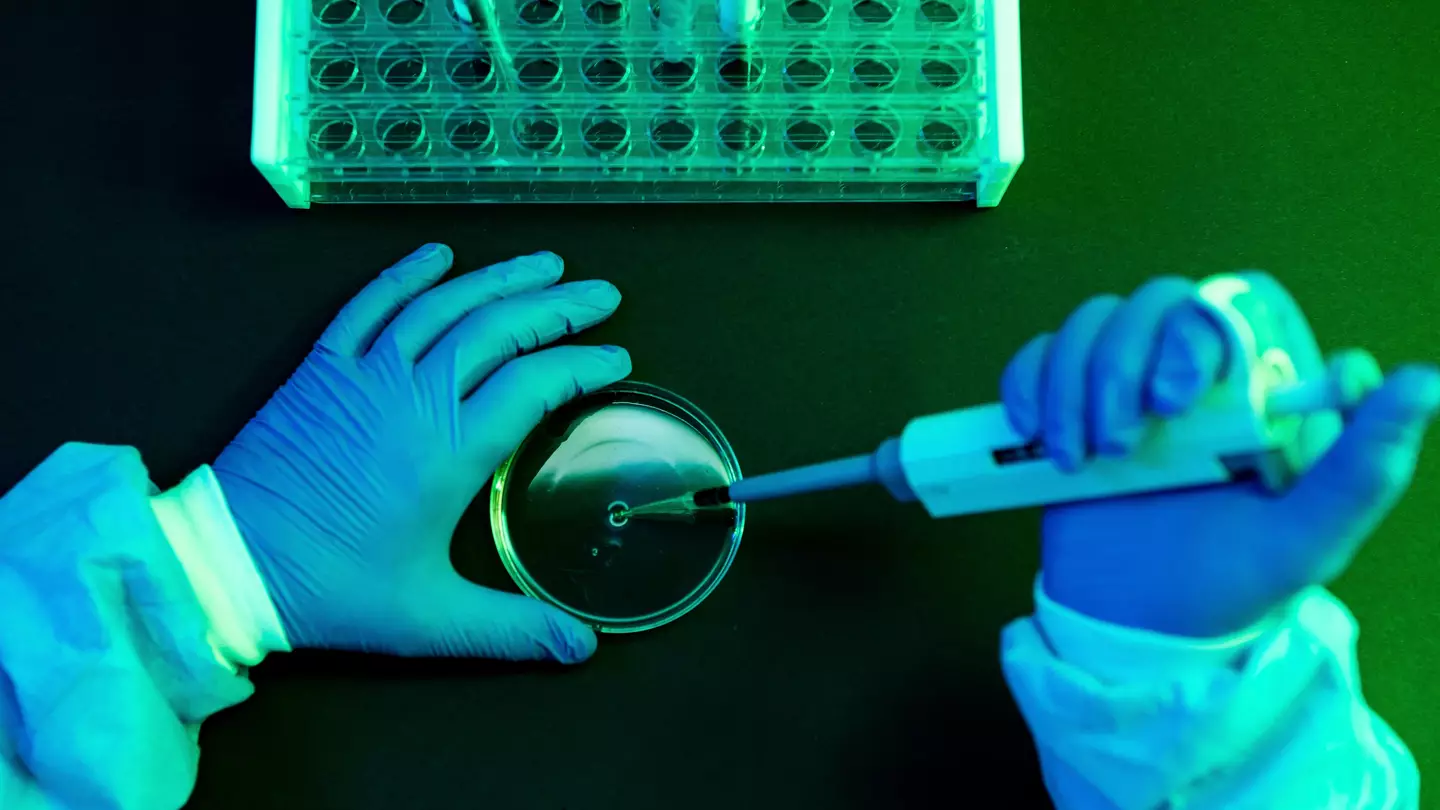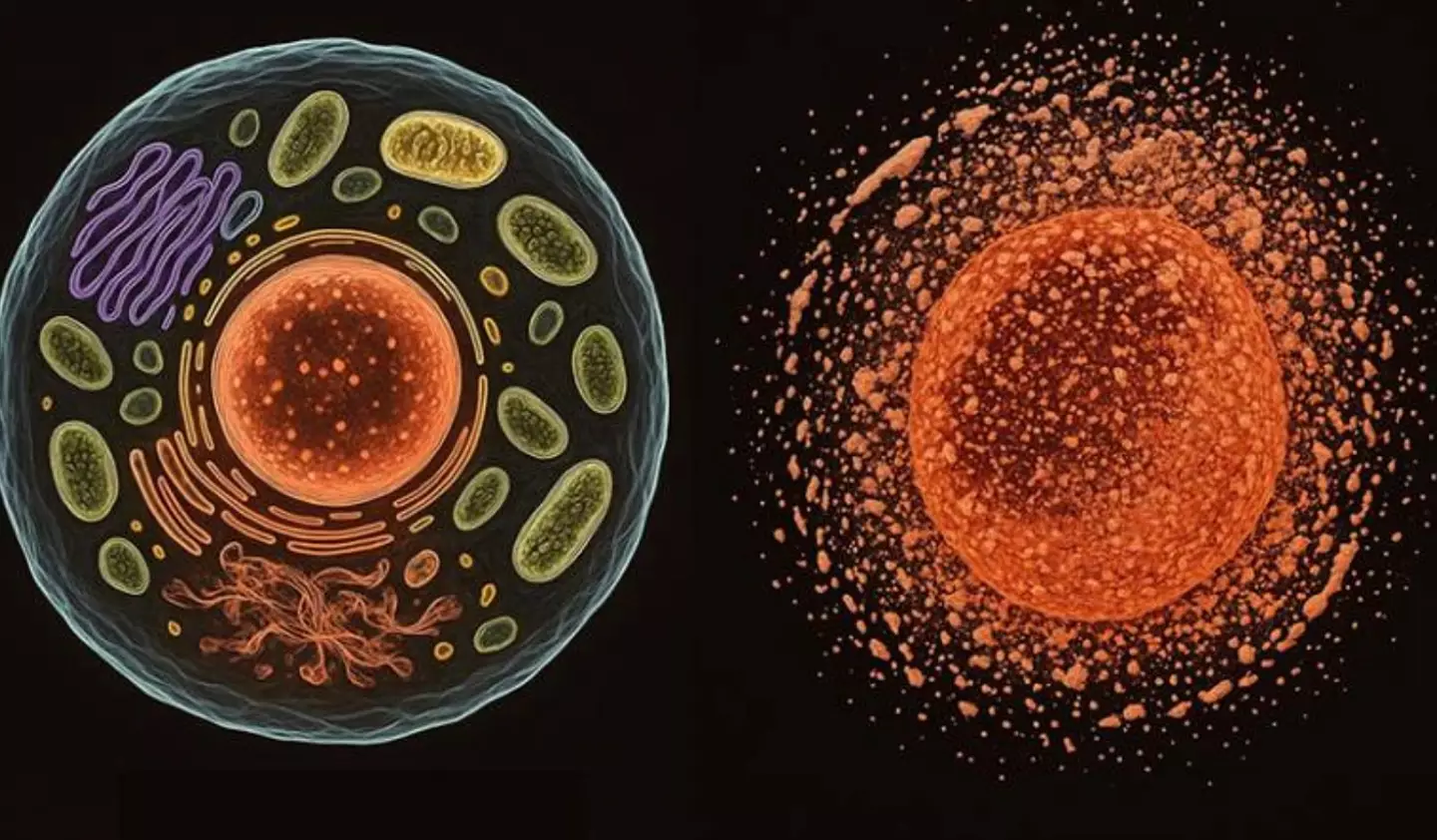
A new wonder drug which could potentially halt the human ageing process could be rolled out in the future, scientists say.
It's still extremely early days, but the medication which could supposedly reverse the effects of 'cell death' might be about to revolutionise the health sector.
Clinical trials are set to take place this year for the new range of drugs - dubbed 'anti-nectrotics' - following the success of a recent study into the impact they can have on dying cells.
Cell death is unfortunately an unavoidable process which does what it says on the tin - the cells inside our body reach the end of their tether, stop working, and die.
Advert
Experts reckon that healthy cells can reproduce up to 60 times before this occurs, while our bodies are also constantly whipping up new ones to cope with the deficit.
When we suffer infection, injury, or disease, this can lead to something of a mass exodus of our cells, which is known as necrosis, which can impact various different areas of your body - from your bones, to your skin and your organs - as, obviously, the death of your body tissue is obviously not good for your health.
The authors of the recent bombshell study published in Oncogene explained that although 'programmed', or natural, forms of cell death is beneficial for our bodies, 'unprogrammed' forms of cell death - AKA necrosis - ultimately leads to biological decline.

Calcium is at the heart of this process, as Dr Carina Kern, lead author of the study and CEO of biotech firm LinkGevity, explained.
"Levels of calcium inside the cell are typically 10,000 to 100,000 times lower than outside," she said. "Calcium is a key signalling molecule, meaning it controls lots of different processes within your cell. And so upon stress, you lose this regulation and then you're initiating multiple pathways in a heightened and really destructive manner within the cell."
This 'loss of calcium-ion gradients' causes the cell to rupture and release their contents into the surrounding area - which can cause problems such as chronic inflammation, genetic instability, and even tumours.
Health experts have also warned that it puts people at risk of various diseases including kidney disease, cancer, Parkinson's and Alzheimer's - or, in other words, a host of age-related conditions.
"Necrosis has been hiding in plain sight," Dr Kern said. "As a final stage of cell death, it’s been largely overlooked. But mounting evidence shows it’s far more than an endpoint. It’s a central mechanism through which systemic degeneration not only arises, but also spreads. That makes it a critical point of convergence across many diseases.
"If we can target necrosis, we could unlock entirely new ways to treat conditions ranging from kidney failure to cardiac disease, neurodegeneration, and even aging itself."
Which is exactly why the team are so keen to whip up a drug which can stop necrosis in its tracks, and if it is doable, the possibilities for 'anti-nectrotics' might be endless.
'Extraordinary claims require extraordinary evidence'

"Necrosis remains one of the last frontiers in medicine - a common thread across aging, disease, space biology, and scientific progress itself," Dr Kern added.
Experts analysed studies into the impact space flights have on astronauts - which can trigger premature ageing and a decline in kidney function - as well as other research into regenerative medicines, cancer biology and kidney disease.
Fellow study author Professor Damian Bailey, from the University of South Wales and Chair of the European Space Agency (ESA) Life Sciences Working Group, said that similar ageing factors on Earth are often 'worse by cosmic radiation and microgravity - speeding up degeneration dramatically'.
Dr Kern added: "In many age-related diseases - affecting diverse organs such as the lungs, kidneys, liver, brain, and cardiovascular system - relentless cascades of necrosis fuel the progression of disease.
"This is often alongside impaired healing that leads to fibrosis, inflammation and damaged cells. Each cascade triggers and amplifies the next.
"If we could prevent necrosis, even temporarily, we would be shutting down these destructive cycles at their source, enabling normal physiological processes and cell division to resume - and potentially even allowing for regeneration."

The biotech boffin further explained that it was previously believed that necrosis was 'just too complex a process to intervene in'...until now.
"What we've managed to identify for the first time is that you can block necrosis, but you have to block more than one molecular target," she said. "When we did that, we saw up to 90 per cent of suppression of necrosis."
Co-author of the study, Dr Keith Siew, from the UCL Centre for Kidney & Bladder Health, also added: "Anti-necrotics could be a way to make those tissues and organs resilient enough to withstand that damage and pause cell death."
But the experts are cautiously optimistic and dubbed themselves as 'professional skeptics' about the success of the new range of drugs, as Dr Siew said that such 'extraordinary claims require extraordinary evidence'.
"Until that data is rock solid, a lot of people will view this skeptically - and rightfully so." he said.